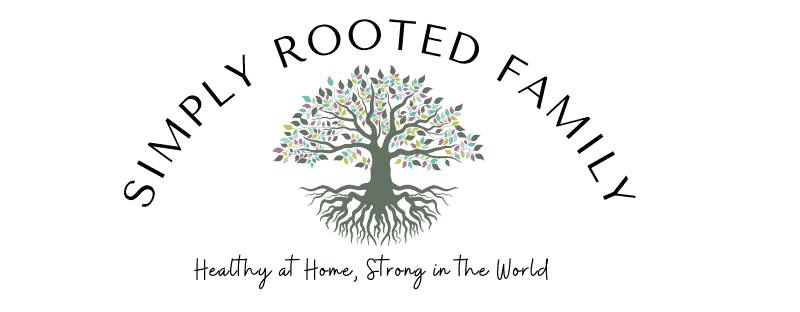Are you wondering what’s gentle parenting or why you seemingly failed the gentle parenting method? Do you feel like gentle parenting is not working in your home? Instead of being hard on yourself, understand these five reasons why many parents feel like they failed gentle parenting, and how to turn things around.
I was dedicated to giving the gentle parenting method a try after reading about the numerous benefits that this seemingly simple parenting method had on children.
Gentle parenting is a peaceful, positive spin on parenting that focuses on the partnership between you and your child – instead of on discipline.
A vision of my children and I laughing and exchanging “No, I love you more’s” as we prance through a butterfly field flashed across my thought bubble.
While that all sounds lovely, it did not feel so cute and calm on one particular Monday morning as I was discussing with my daughter if shoes were needed for school as the school bus skipped past our house.
And while I may have looked calm, on the inside I was seeing red and violently panicking.
Had I totally failed gentle parenting? Am I destined to be an angry parent?
Also read: 5 Reasons Why Your Teen or Kid is Pulling Away

Why Parents Throw in the Towel on Gentle Parenting
Before you consider gentle parenting the enemy and wave the white flag, learn the 5 reasons why parents commonly fail this method.
1) You Don’t Really Know What Gentle Parenting Means
Gentle parenting simply refers to parenting without blame, shame, or punishment.
It is centered on a collaborative relationship between both parents and children.
It throws out the old ideas of a family hierarchy (“because I said so”) and focuses on the empathy and mutual respect.
Simply put, gentle parenting is a softer, gentler approach to parenting. Parents who practice gentle parenting use consistency, patience and boundaries to guide their children.
An example would be replacing “It’s cold outside, put on a coat” with “Do you think it’s a good idea to bring your coat in case you get cold?”
Gentle parenting relies on natural consequences to teach children, instead of parental demands.
It is not one-size-fits all. Basically, if you let your child express emotions, ask their opinions, and model respectful behavior you are practicing gentle parenting.
You may enjoy: 5 Ways to Hard-wire Your Kids for Happiness
2) You Haven’t Heard all the Benefits of Gentle Parenting
Of course gentle parenting takes a lot of time and patience, but there are many extraordinary benefits to this parenting style.
- Children have less anxiety – One study found that gentle parenting “may promote regulated responses in social contexts” in shy toddlers
- Gentle parenting improves social skills – Since it is rooted in empathy, respect and positivity, children learn to model these traits leading to empathetic, respectful humans.
- Grow to trust themselves – Children who were raised with gentle parenting have learned how their choices impact their lives, and they are more confident in the world.
- Less likely to be bullied – Children learn how to be independent and voice their concerns and feelings at an early age.
- It enhances family bonding – This study found that gentle parenting may improve the relationship between parents and children by focusing more on love.

You may also like: 5 Signs You are Too Strict
3) You Don’t Let Yourself Make Mistakes
Armature and professional gentle parents alike aren’t perfect all of the time.
We are human, and if you slip up and lose your temper, it does not make you a gentle parenting failure.
Gentle parenting doesn’t mean that you won’t be upset. Nothing in life is that black and white.
In fact, talking through your emotions when you are angry or after yelling is a great way to show your kids empathy, boundaries and mutual respect.
Instead of giving up on the method, take these 5 steps:
- Take a deep breath
- Forgive YOURSELF
- Tell your child you are sorry (if you feel it’s necessary)
- Talk openly about how you felt during the situation
- Show your child love
It will strengthen your bond exponentially, relieve your guilt, and teach your child about conflict when you say something like:
“I am sorry I yelled. I was upset that we were going to miss the school bus and you would be late for school. What do you think we can do next time? I love you”.
Try it!
Read: How to Hit the Reset button after you yell
4) You Haven’t Taken Time to Focus on YOURSELF
Gentle parenting aside, you can’t possibly be an understanding or calm parent if you are physically exhausted, mentally drained, or emotionally frustrated.
Self-care comes in all shapes and forms, but one thing is for sure – we all need it.
You will be a much happier parent. Ready for a wonderful day of gentle parenting, if you take some time to focus on yourself here and there.
Make it a priority to focus on some self love.
Read: You are NOT an Angry Mom, You Just Need These Things
5) It’s a Truly Difficult Parenting Method for You
Depending on your personality, your child’s personality/behavior, and your own childhood, gentle parenting may be a huge challenge for you.
And that is okay! There are plenty of different parenting methods out there and it is important to find what works best for you and your family.
However, just because you don’t enjoy the gentle parenting method, it doesn’t mean you won’t still learn from it.
When your child is upset, ask them to explain how they feel. Or if you are making a decision, you can ask for their input. These types of techniques empower your child to grow into a confident and thoughtful adult.
Learn about the 4 General Parenting Styles here.

Related: Your Biggest Bully is your Kid? Read this!
Final Thoughts on What’s Gentle Parenting and Why we Fail
Gentle parenting, even in the smallest forms, leads to strong family bonds and empowered children.
It is the key to raising kids who come to us with their problems (not hide from us).
And it is the driving factor in developing grateful, responsible, and empathetic humans.
If you are dedicated to making gentle parenting work, don’t let minor bumps in the road stop you. With any type of parenting, you will, no doubt, have bumps in the road.
Continue on the path with love, and you will prevail.
For more honest parenting conversations, follow us on Facebook.

